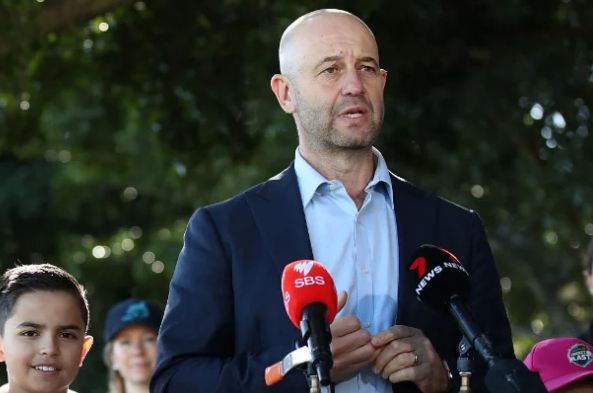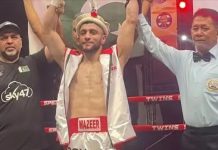CANBERRA, OCT 25: Cricket Australia chief executive Todd Greenberg has confirmed that Pakistan players with Big Bash League (BBL) contracts have been cleared to take part in the upcoming season, easing concerns over the Pakistan Cricket Board’s (PCB) earlier decision to withhold No Objection Certificates (NOCs) for overseas leagues.
In late September, PCB Chief Operating Officer Sumair Ahmad Syed issued a directive halting Pakistani players from participating in foreign T20 tournaments. However, Greenberg stated on Saturday that the situation has now been resolved.
“That came through last week,” Greenberg said. “So they’ll all be playing, they’ve all been cleared to play, which we’re really excited about because we’ve got some great Pakistan players in the BBL. We’re looking forward to seeing them here this summer.”
Among the Pakistan stars confirmed for the BBL are Babar Azam (Sydney Sixers), Shaheen Shah Afridi (Brisbane Heat), Hasan Ali (Adelaide Strikers), Mohammad Rizwan (Melbourne Renegades), Haris Rauf (Melbourne Stars), and Shadab Khan (Sydney Thunder).
The tournament will run from December 14 to January 25.
Fans are eagerly anticipating the head-to-head clashes between Babar and Shaheen on January 5 and January 18, adding extra excitement to this season’s lineup.
The BBL will also feature Indian off-spinner Ravichandran Ashwin, who joined Sydney Thunder after going unsold in the ILT20 auction. His signing has been hailed as a landmark moment, sparking speculation that more Indian players could explore overseas opportunities later in their careers.
“Short, medium term I think it is realistic over time,” Greenberg said of whether more Indian players could join the league.
“We’re going to keep the dialogue open. I think that Ravichandran Ashwin coming is a really important moment for the BBL and it will highlight the strength of bringing Indian players into the league. What that manifests over time I think is to be seen. Some of that will depend on whether we take private capital into the BBL which is an open conversation for us at the moment.
Cricket Australia is currently assessing the option of private investment in the BBL, with Greenberg and CA chair Mike Baird optimistic about making progress before the end of the year, though some uncertainty remains among state associations.
“We should have aspirations to make sure the very best players, both here in Australia and globally, can play in the BBL,” he said.
“That costs money because players have leverage and opportunity to play all over the world. That’s one of the primary drivers [for] why we would consider bringing private capital into the BBL so that we can compete on the global stage. We’re a small domestic market here, but we’re competing globally and to do that we’ve got to be the best version of ourselves,” he added.
The CA chief also addressed growing concerns about player retention amid lucrative offers from international leagues. Reports earlier this month suggested Pat Cummins and Travis Head rejected A$10 million long-term deals from IPL-linked franchises.
Greenberg said that while senior players remain committed to Australia, the challenge lies in securing the next generation.
“I think it’s a realistic concern for everybody that players have leverage and choice to ply their trade all over the place,” he said. “But I’d say this, though, every player I talk to, priority A is to play for their country…so that’s a really important marker.
“But, and there’s a big but here, the next generation is really what I’m focused on. It’s not this current crop that I’m as concerned about as the next generation of players. We’ve got to make sure we find ways for them to stay in Australian cricket, still generate central contracts, still want to play for their country in the same way generations have and this current generation does.”
He made these remarks as Cricket Australia launched its new six-a-side Smash Series, a community-level format designed to be completed within 60 minutes.
The initiative aims to make cricket more accessible, featuring pairs-based batting and the use of softer balls to encourage broader participation.

















